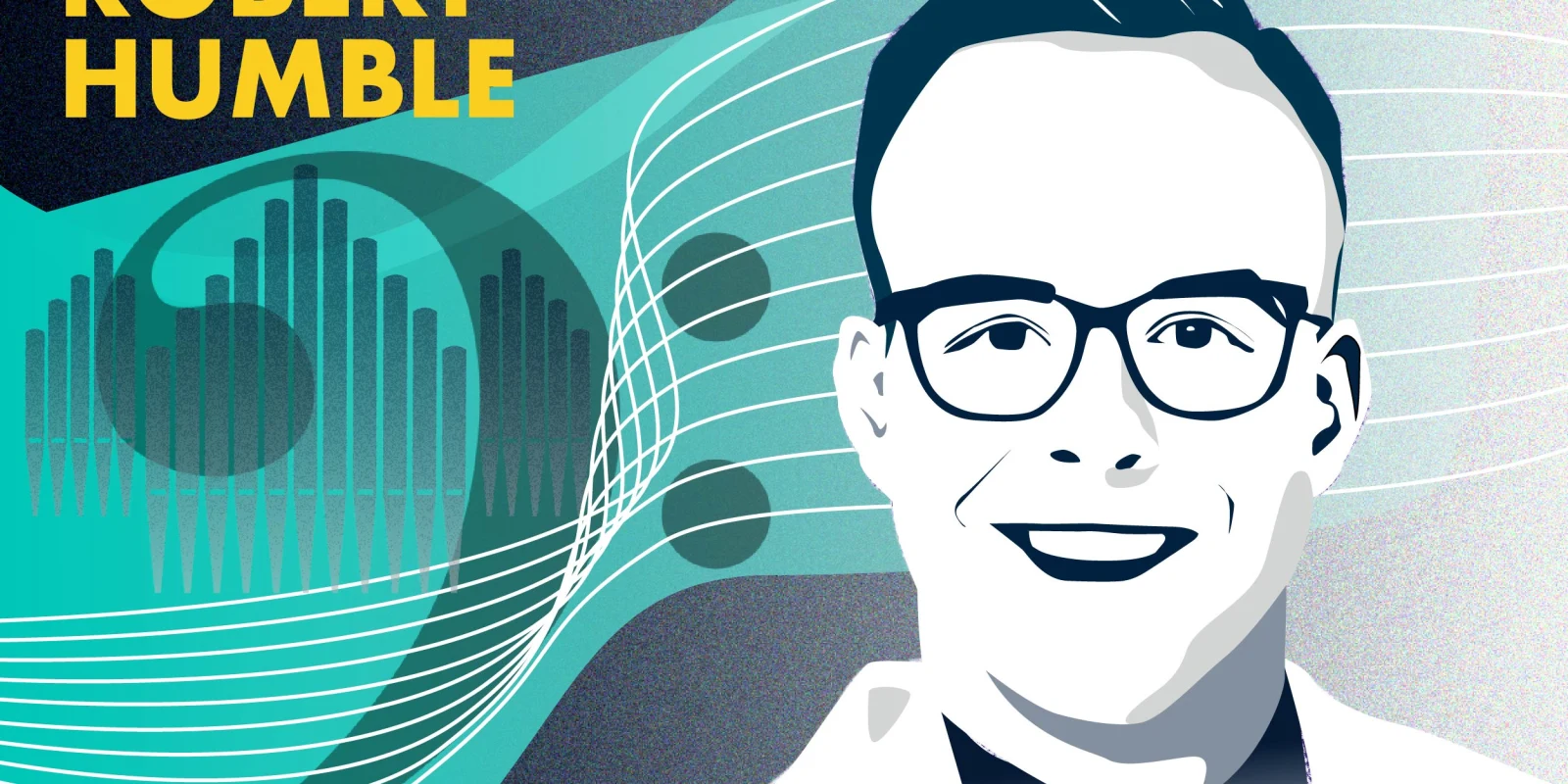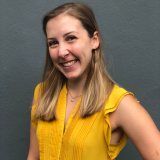 Robert Humble knows organs well. He keeps an eye on his patients’ organs during the week, and performs as an organist in a church on weekends.
Robert Humble knows organs well. He keeps an eye on his patients’ organs during the week, and performs as an organist in a church on weekends.
Humble, a medical student at the University of Iowa Carver College of Medicine, started playing piano at age five, and first got his hands on a church organ when he was in eighth grade.
“They’re cool. They're huge. They make a lot of noise. They're very complex machines and so as a kid, it was just fascinating to be in there, playing with the instrument that not many people get to,” Humble says. After missing it for a year in Chicago for an after school program, he returned to Iowa and got back into it.
“It’s become one of those things that is so separate and different than my day-to-day responsibilities. It’s therapeutic in a lot of ways, really,” Humble says.
But as complex as playing an organ is, with all the different pedals and keyboards, he doesn’t think it’s very much like taking care of a patient. Though he can say about organs — both the kind in your body and the musical instrument: “There are a lot of moving parts and if they aren’t working together in concert, the end result isn’t good.”
Breaking From Tradition
In addition to playing a non-traditional instrument, Humble also took a non-traditional route to medical school, working at the hospital at the University of Iowa for a year and a half prior to starting medical school.
“Being back in the classroom for the basic science part of medical school was not terribly gratifying,” Humble remembers. “You didn’t really get the sense that you were helping anyone and at the end of the day you didn’t really feel like you accomplished anything of value. Of course you’re learning, but you can always study for another 12 hours and still not be where you need to be.”
Once he got out of the classroom and into the hospital on a day-to-day basis, being a “source of comfort and information to patients and their families, and getting to be present for some very meaningful moments in people’s lives,” he says that “all the work on the front end and all the work after hours felt worth it.”
But while he finds meaning and value in his work, he also sees it as just that: work, saying that “medicine is a job.”
“My point when I tell people that is I want people to have a sense of perspective. By definition it is a job, and for many of us hopefully it’s a calling at the same time, but it’s not everything,” Humble says, and points to the growing focus on physician burnout and wellness, not just for patients but for providers as well. “[Medicine] is incredibly important and meaningful to me, but there are other things that make me me, and I’m still me even without medicine.”
More Than Medicine
Who else is he without medicine and playing the organ? A political activist who used to be a Republican.
Humble inherited the political leaning and didn’t think much of it for a while, but started to get more into politics and found that his views aligned more closely with Democrats. He still does his best to work across party lines whenever he does any political activity, but says when he tells people he used to be a registered Republican, they usually think he’s joking.
“I think almost all of us have have changed our mind on things and all of us change how we view the world as we get older and I'm certainly not unique in that regard,” says Humble. Right now Humble is involved in politics through student government and public policy.
Humble takes an interest in public policy because “I think in a lot of ways, it ties right back into medicine because public policy dictates the way that we practice. And it’s another one of those things that is separate from medicine and that’s partially why I enjoy it.”
He got into these separate hobbies while waiting to get into med school — he applied three times before he got in. And once he was finally in school, he didn’t want to “entirely abandon” his other extracurriculars.
Appreciating Unique Privileges
Sticking with his goal of going to med school was difficult, so he followed the advice his parents gave him: persevere. Then, shadowing a resident, he heard another piece of advice that resonated with him: medicine is a privilege.
“He pointed out that it's an immense privilege to get to be there for people in these very intimate moments,” Humble says, advice that he now tries to pass along to others.
“I feel like it's a huge privilege and to not take it for granted how relatively few people get the opportunity to be there for people like that,” he says. Just like how relatively few people get to play the organ.
Illustration by Yi-Min Chun







